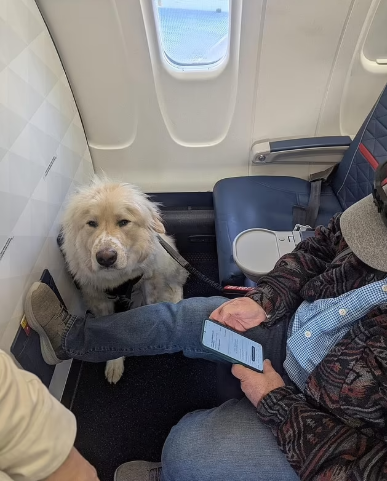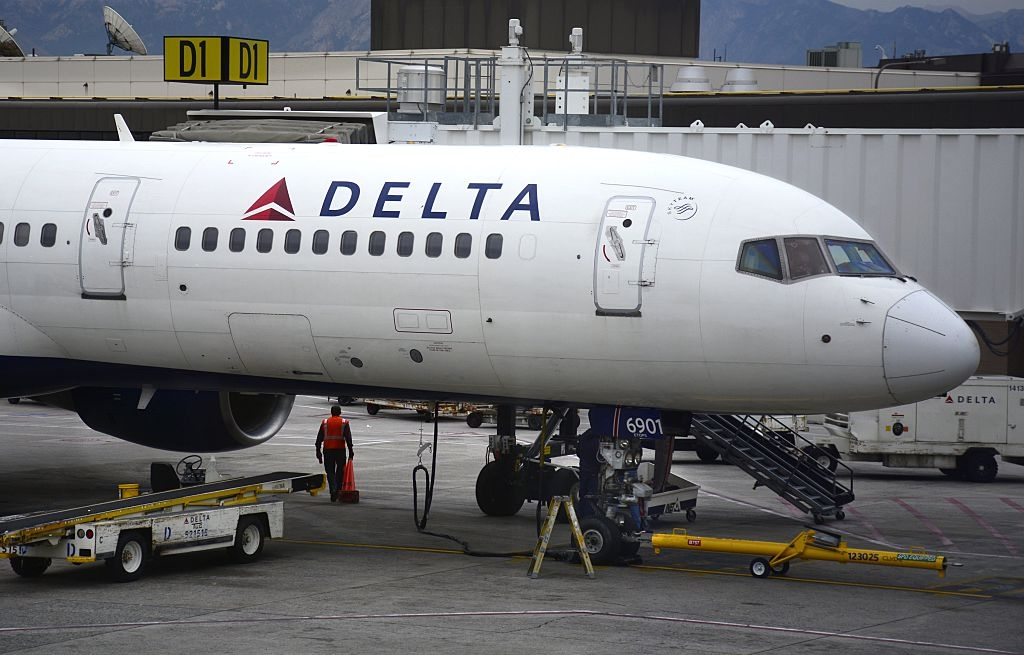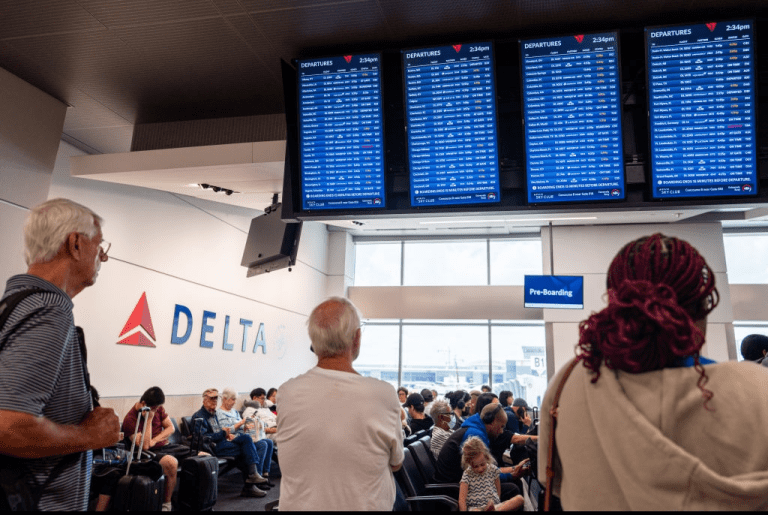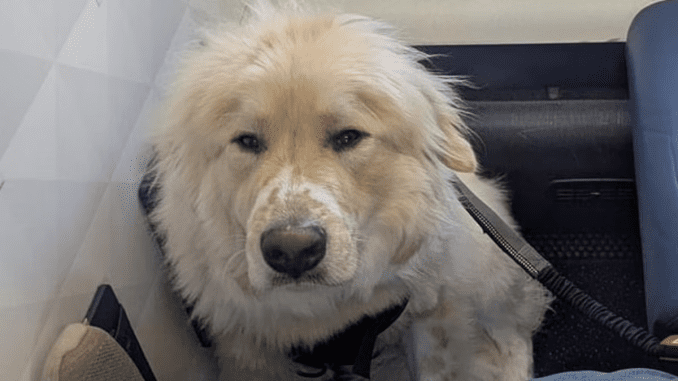Traveling by air can be stressful enough with long security lines, cramped seats, and unexpected delays. But for one Delta passenger, the frustration reached a boiling point when they were allegedly forced to give up their first-class seat for a dog. This incident has sparked a heated debate over the rights of pet owners versus paying passengers, and what’s fair when it comes to seating arrangements on flights. Let’s break down the story, explore the issues, and weigh the pros and cons of this controversial situation.
The Incident That Set Off a Firestorm

Imagine the excitement of securing a coveted first-class seat for a long flight. You’ve paid a premium price for extra legroom, better service, and, of course, the comfort that comes with flying in the front of the plane. Now picture your moment of relaxation being abruptly interrupted when the flight attendants ask you to relinquish your seat for a dog.
That’s exactly what one Delta passenger experienced on a recent flight. According to the passenger’s account, they were on a Delta flight when a flight attendant allegedly told them they had to give up their first-class seat to accommodate a dog. The passenger, understandably upset, voiced their frustration on social media, expressing how unfair and uncomfortable the situation was.
Why Was the Passenger Asked to Give Up Their Seat?
The reason behind the passenger being asked to vacate their seat was a matter of “pet policy” according to Delta Airlines. Like many airlines, Delta allows pets to travel in the cabin under certain conditions. However, only a limited number of pets are allowed per flight, and they are typically placed in the cabin near the owner’s seat. The seating for pets is usually confined to regular economy class or specific pet-friendly spots.
However, the situation took a turn when the passenger claims that the dog, which was accompanied by its owner, was given priority for the first-class seat. This has left many people questioning whether the airline’s decision was reasonable or whether it crossed a line in favor of pet owners.
Pet Policy on Delta and Other Airlines
Many airlines, including Delta, have specific policies in place for traveling with pets. Generally, small pets are allowed in the cabin, but they must be placed in an airline-approved carrier that fits under the seat. There are restrictions, such as the number of pets allowed per flight, and these policies often vary depending on the airline.
For instance, Delta allows pets to travel for a fee, and they are typically placed in the cabin if space permits. Larger animals, however, may be required to travel in the cargo hold. On some flights, especially those in first class, it’s possible that there may be confusion over seat assignments if a pet has been mistakenly prioritized for a premium seat.
This particular case raises a valid concern: Is it fair for a paying passenger to give up a premium seat for an animal? After all, passengers have purchased these seats with the expectation of a certain level of comfort and service.
The Passenger’s Reaction: Frustration and Outrage

The passenger’s response to being asked to give up their seat was one of shock and frustration. After paying for a first-class ticket, the idea of giving up their seat for a dog understandably didn’t sit well. They took to social media to voice their displeasure, describing how they were made to feel less important than the dog and its owner.
The post quickly went viral, sparking a wave of reactions from other travelers who sympathized with the passenger’s plight. Many expressed their support, arguing that the airline’s decision was unfair and that paying customers should have priority over pets, even if those pets are traveling in the cabin.
On the other hand, some defended the airline’s policies, stating that pets are an important part of many people’s lives and that airlines must make accommodations for those traveling with them. The debate highlights a growing trend where pet owners seek the same level of accommodation and luxury for their pets as they do for themselves.
Are Pet-Friendly Policies Becoming Too Much?
In recent years, many airlines have been catering to the growing number of pet owners who want to travel with their furry companions. Pet-friendly policies have expanded, allowing more animals to fly in the cabin, with some airlines even offering special services like pet-friendly cabins, dedicated areas for pets, and more. While this is great for pet owners, it raises questions about fairness and balance.

Should airlines prioritize paying customers or their pets? Some argue that first-class seats are meant for human passengers who have paid for the luxury of extra space and comfort. Meanwhile, others believe that pet owners deserve special treatment, especially if the animal is a service dog or an emotional support animal, which often have rights under the Americans with Disabilities Act.
The issue becomes even more complex when it comes to airlines’ ability to manage space and prioritize passengers. Some passengers feel that paying for premium services should come with the assurance that there will be no surprises or disruptions, while others feel that pets should be treated as an equal part of the family unit, especially on long flights.
What Could Have Been Done Differently?
There’s no clear answer to the dilemma, but there are some possible solutions that could have prevented the altercation and made the situation smoother for everyone involved. For starters:
- Clear Communication: Airlines must ensure that their pet policies are communicated clearly to passengers at the time of booking and before boarding. This way, no one is caught off guard by a change in seating arrangements.
- Pet Designated Areas: Another solution would be to have designated pet-friendly sections in the cabin to avoid having passengers feel like they are giving up their premium seat. These areas would allow pets to travel comfortably without infringing on the space of paying customers.
- Flexible Pet Policies: Airlines could consider more flexible policies when it comes to accommodating pets, especially for longer flights. For example, making more space available for pets traveling in premium cabins, provided there’s no disruption to paying passengers.

Conclusion: The Need for Balance and Understanding
Ultimately, the Delta passenger’s experience highlights the growing tension between the needs of pet owners and the rights of paying passengers. While airlines should continue to be accommodating to pets, it’s important that they also prioritize the comfort and expectations of the human passengers who have paid for premium services like first class. Clear communication and well-thought-out policies are key to maintaining balance and ensuring that both pets and passengers can travel without friction. Whether it’s seating, space, or special treatment, airlines must find a way to accommodate all passengers—human and furry alike.


